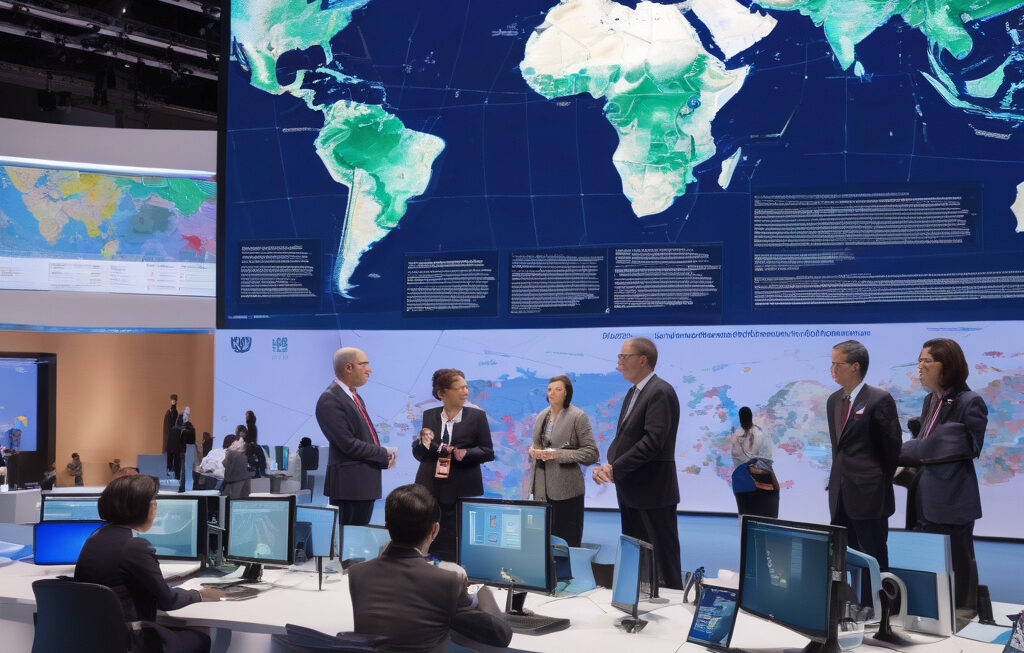UNESCO Pushes for Digital Trust at WSIS+20
Digital platforms are reshaping how we experience truth, trust, and crisis, and global leaders are racing to ensure these systems serve the public good rather than deepen societal divides. In the ever-changing landscape of the digital world, ensuring trust and reliability is paramount. This is why organizations like UNESCO are pushing for digital trust at events like the World Summit on the Information Society Forum 2021 (WSIS+20).
The World Summit on the Information Society (WSIS) is a unique global platform that aims to foster dialogue, cooperation, and partnerships on issues related to the information society. As we mark the 20th anniversary of this significant event, the focus on digital trust is more critical than ever. With the rise of fake news, misinformation, and data breaches, ensuring trust in digital platforms has become a pressing concern for governments, businesses, and individuals alike.
UNESCO, as the United Nations’ specialized agency for communication and information, plays a crucial role in promoting freedom of expression, media development, and access to information. At WSIS+20, UNESCO is advocating for policies and frameworks that prioritize digital trust and integrity. This includes initiatives to combat disinformation, promote media literacy, and strengthen the safety of journalists and media professionals.
One of the key challenges in building digital trust is the rapid spread of misinformation and disinformation online. False information can spread like wildfire, causing harm to individuals, communities, and even entire societies. UNESCO is working with governments, tech companies, and civil society organizations to develop strategies to combat misinformation effectively. By promoting fact-checking, critical thinking, and digital media literacy, UNESCO is empowering people to navigate the complex digital landscape with confidence and discernment.
In addition to combating misinformation, UNESCO is also focusing on enhancing the safety of journalists and media professionals. In many parts of the world, journalists face threats, harassment, and violence for simply doing their jobs. This not only infringes on their rights but also undermines the public’s right to access reliable information. By advocating for press freedom, safety training, and legal protections for journalists, UNESCO is working to create a safe and enabling environment for media professionals worldwide.
Furthermore, UNESCO is championing the development of ethical guidelines and standards for digital platforms. Tech companies play a significant role in shaping the digital ecosystem, and it is essential that they uphold ethical practices that prioritize user trust and well-being. By engaging with industry stakeholders, UNESCO is promoting transparency, accountability, and responsible behavior in the digital space.
As we navigate the complexities of the digital age, building trust in digital platforms is not just a matter of convenience but a necessity for a thriving and inclusive society. Events like WSIS+20 provide a crucial platform for global leaders to come together, share best practices, and chart a path forward towards a more trustworthy digital future. By prioritizing digital trust, we can harness the full potential of technology to advance human progress and bridge societal divides.
In conclusion, UNESCO’s advocacy for digital trust at WSIS+20 is a timely and essential effort to ensure that digital platforms serve the common good and uphold the values of truth, trust, and integrity. By fostering collaboration, dialogue, and innovation, we can create a digital ecosystem that is safe, inclusive, and empowering for all.
#UNESCO, #WSIS+20, #DigitalTrust, #MediaLiteracy, #PressFreedom












